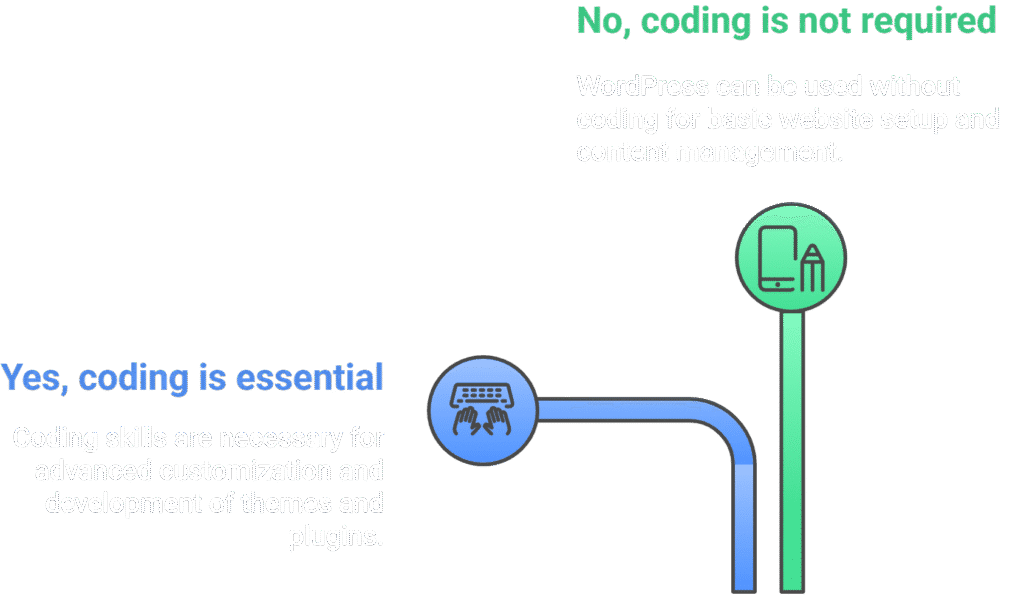
WordPress development is the process of creating, customizing, and maintaining websites using WordPress, the most popular content management system (CMS) in the world. Today, WordPress powers over 40% of all websites, from personal blogs to massive eCommerce stores. But WordPress development is more than just installing a theme and clicking publish. It’s about using the platform to build powerful, secure, and scalable digital experiences.
This article is your big-picture introduction to WordPress development. We’ll cover what it means, who WordPress developers are, why the platform is so popular, and what kind of opportunities exist around it. Later articles will dive deeper into specific questions like coding requirements, developer salaries, or how AI tools like ChatGPT fit into the picture.
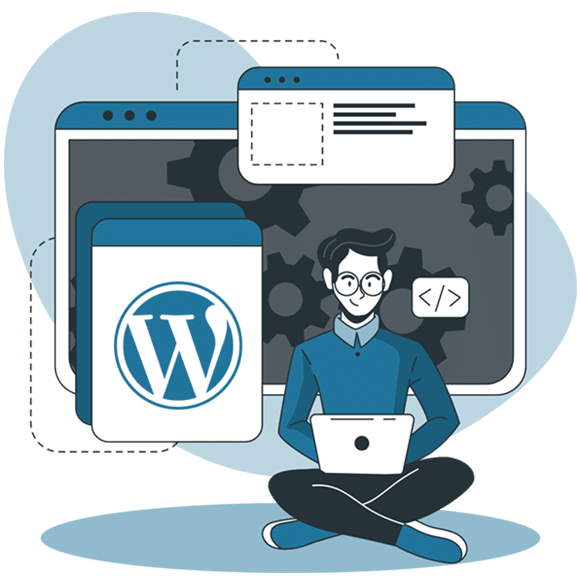
Click-Through Rate (CTR)
Conversion Rate
Cost Per Acquisition (CPA)
Cost-Per-Click (CPC)
When people talk about “WordPress development,” they’re usually referring to one or more of the following:
In short, WordPress development is about tailoring the platform to fit specific needs, whether that’s a blog, an online store, a membership site, or even a custom application.
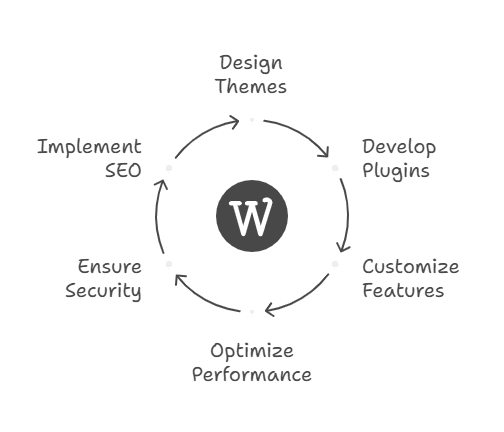
There are many reasons why WordPress has become the go-to CMS:
Because of this balance between simplicity and power, businesses of all sizes choose WordPress.
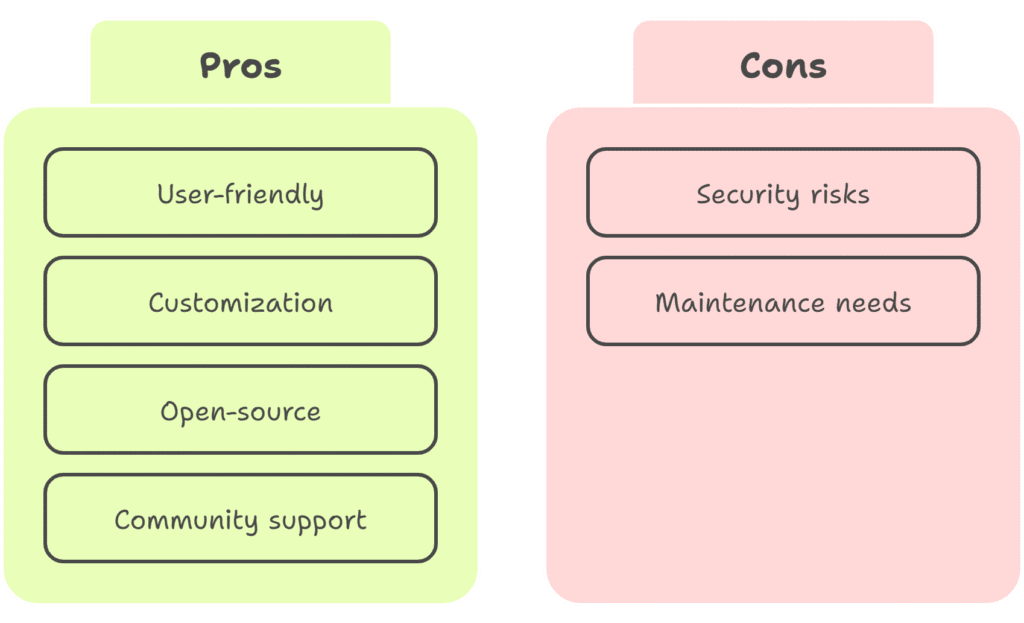
A WordPress developer is someone who builds or customizes websites on the platform. Some focus on front-end development, which means working on design, themes, and user experience. Others focus on back-end development, like writing plugins, building integrations, or handling server logic. A third group works as full-stack developers, combining both skill sets.
You’ll also find WordPress specialists who are experts in specific tools such as Elementor, Divi, or the Gutenberg block editor. Others focus on writing custom code for more complex needs.
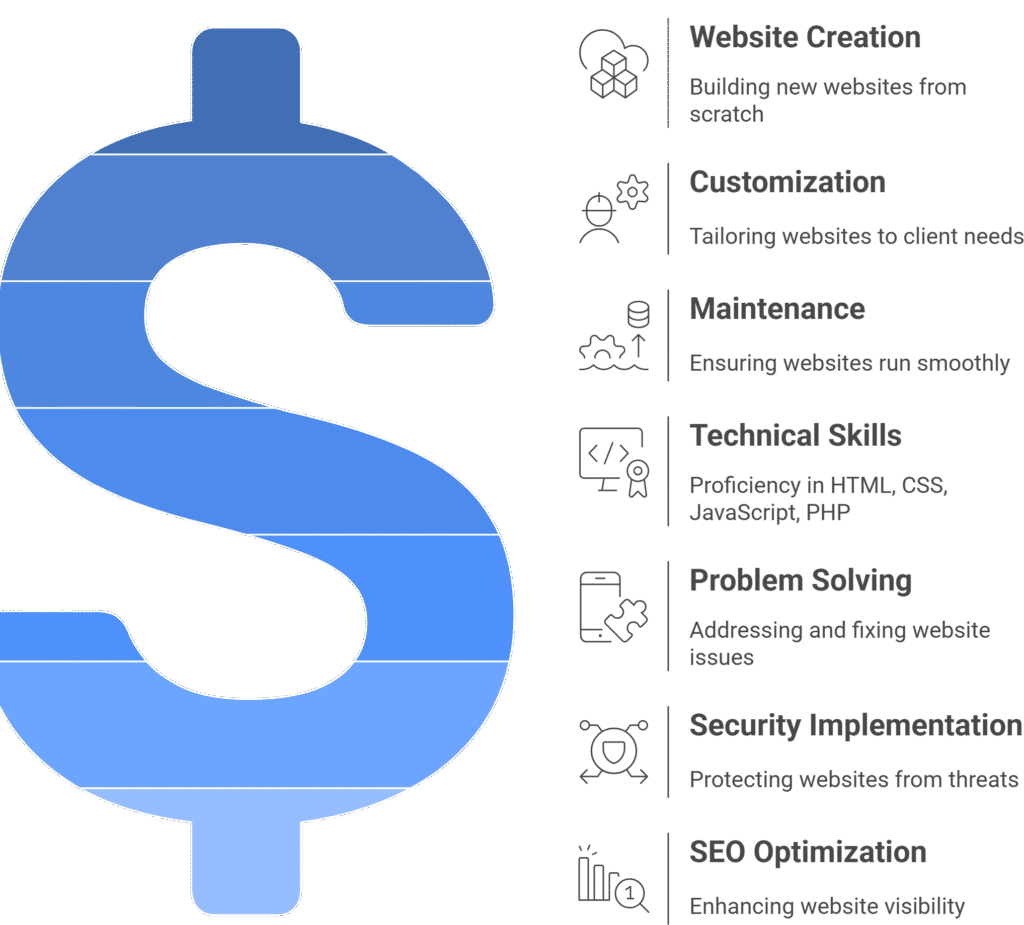
This is one of the most common questions. The short answer: not always. With modern drag-and-drop builders, you can launch a website without writing a single line of code.
However, coding becomes essential if you want advanced customization or unique functionality. The main languages used in WordPress are:
If your goal is professional WordPress development, you’ll eventually need at least a working knowledge of these.
